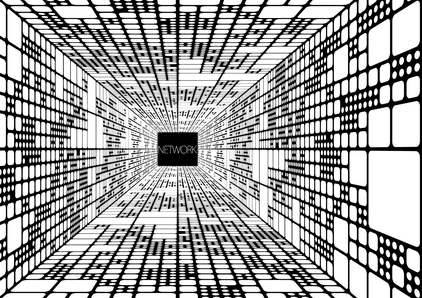
They are considered to be the oil of the 21st century. The tons of data that we voluntarily give big data corporations for free. Google or Facebook have access to personal data that even dictatorships tend to get jealous of. If data is indeed the oil of the 21st century, then privacy regulations are like laws for environmental protection. We all know that there is a huge discrepancy between big data and privacy. In the following piece I would like to reflect on basic terms and the current situation in the European Union. Maybe, we need to start all over again an rethink data usage.
Data protection is not just the absence of the name!
There is a very important difference between <anonymization> and <singling out>. Major Big Data companies believe to respect privacy and advertise that in a prominent way. But all they really do is anonymization. That means that they collect personal data about us - our eating and shopping habits, partner preferences or our movement profile. So in essence, they collect everything about me but the name, which is what we call <anonymization>. When in reality, the collected data could only be linked to one person, me. At this point, putting a name behind the data is irrelevant. When you call the boy with the blond hair, the blue jeans and the white shirt in your classroom to stand up, everyone knows who you referred to. That is what we call <singling out>.
Do we always know what we agree to?
Nothing seems to be easier than to get the consent to the general terms and conditions of anything on the internet. Especially when you are in a hurry and you want to book the hotel room at the cheapest price and you have just 3 minutes left. You would probably agree to anything. Or did you know that the documents you saved on GoogleDocs technically do not belong to you anymore? That is written in the general terms and conditions. Just like licensing with creative commons on the web, the user needs to be asked in plain English, whether he or she agrees to the intentions the company has with his or her data or not. They really need to understand what it is they are agreeing to and they need to be aware of the consequences. Otherwise these consent buttons you klick on, have no reason for being.
Are we aware of the consequences?
The privacy policy of the European Union has been reformed by April 2016. Bearing in mind that data protection affects all branches of our economy, it is much more than just about IT - the financial sector or big industries to name just two. But the principle is very simple: Individual-related data belongs to the affected person. Even with these clear new regulations in place, it is wise to think about the data track we are leaving. For instance, there are search engines available that do not collect personal data (i.e. Startpage). And when it comes to social networks, I always advise our students and teachers to bear one thing in mind: Anything that you are not ready to scream through a megaphone in your city’s largest square, you should not post on Facebook, Twitter, Instagram and what not. Because one thing remains unchanged no matter the new regulations: The internet does not forget …
